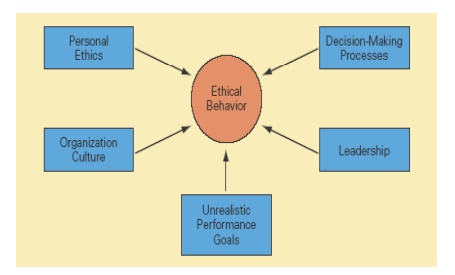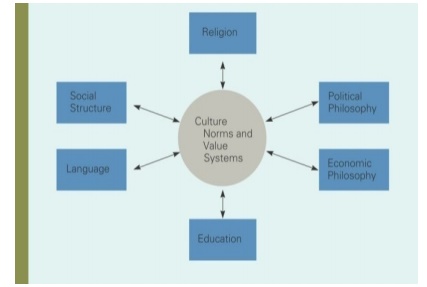Chapter: Business Science : International Business Management : Conflict Management and Ethics in International Business Management
Ethics in International Business
ETHICS IN INTERNATIONAL BUSINESS
Business Ethics:
Business
ethics are principles of right or wrong governing the conduct of business
people. The text says, “The accepted principles of right and wrong” But there
are many differences of opinion among highly ethical business people.
Ethical Issues in International Business
Many
ethical issues and dilemmas are rooted in differences in political systems,
law, economic development, and culture. Some key ethical issues in
international business
Employment
Practices
When work
conditions in a host nation are clearly inferior
to those in a multinational’s
home
nation, what standards should be applied?
How much divergence is acceptable?
Determinants of Ethical Behavior:
Organization
culture Personal ethics
Decision
making processes Leadership
Unrealistic
/ realistic performance goals
The Roots of Unethical Behavior:

Ethical Decision Making
Five
things that an international business and its managers can do to make sure ethical issues are considered
– Favor hiring and promoting people with a
well-grounded sense of personal ethics
– Build an organizational culture that places a
high value on ethical behavior
– Make sure that leaders within the business not
only articulate the rhetoric of ethical behavior, but also act in a manner that
is consistent with that rhetoric
– Implement decision-making processes that require
people to consider the ethical dimension of business decisions
– Develop moral courage
What is culture?
“A system
of values and norms that are shared among a group of people and that when taken
together constitute a design for living.”
Different components of culture:
Values:
Abstract ideas/assumptions about what a group believes to be good, right and
desirable
Norms:
social rules and guidelines that prescribe appropriate behavior in particular
situations
Folkways:
Routine conventions of everyday life.
o Little moral significance
Generally, social conventions such as dress codes,
social manners, and neighborly behavior
Mores:
Norms central to the functioning of society and its social life
Greater significance than folkways
o Violation can bring serious retribution,
Theft, adultery, incest and cannibalism
Determinants of culture

Improving Global Business Ethics
Seven Moral Guidelines for MNCs
Inflict
no intentional or direct harm
Produce
more good than bad for the host country Contribute to host country’s development
Respect
the human rights of their employees Pay their fair share of taxes
Respect
local cultural beliefs that do not violate moral norms
Cooperate
with the government to develop and enforce background institutions
The Role of Ethics in International Business
International
business ethics has a number of open questions and dilemmas. Today it is
characterized by the following elements: Every culture and nation has its own
values, history, customs and traditions, thus it has developed own ethical values
and understanding of ethical principles; There is no international ethical code
of conduct, accepted and followed by all the countries; There is a lack of
governments’ initiative to create ethical cooperation framework and thus to
enhance ethical behavior in international business; It is hard to outline those
ethical values which would be understandable, acceptable and important for
representatives of all the continents simultaneously within different types of
international cooperation projects.
Following approach to international business
ethics:
Every
individual and every corporate body must outline its ethical values; Every
individual and company should ensure understanding of ethical values and belief
in their effectiveness and importance;
Employees
of every organization must participate in creating a corporate code of conduct,
which in this case definitely represents corporate culture, rather than only
personal views of a company’s leader; Every individual and company must monitor
compliance with the outlined values at all times.
All the
ethical values must be divided in two categories – rigid and flexible. Rigid
are those values which cannot be renounced under any circumstances (honesty,
integrity, professionalism), and flexible ones, which are those moral
principles which may be interpreted in different ways in different situations
(will to understand other cultures’ values, remuneration policies).
Related Topics